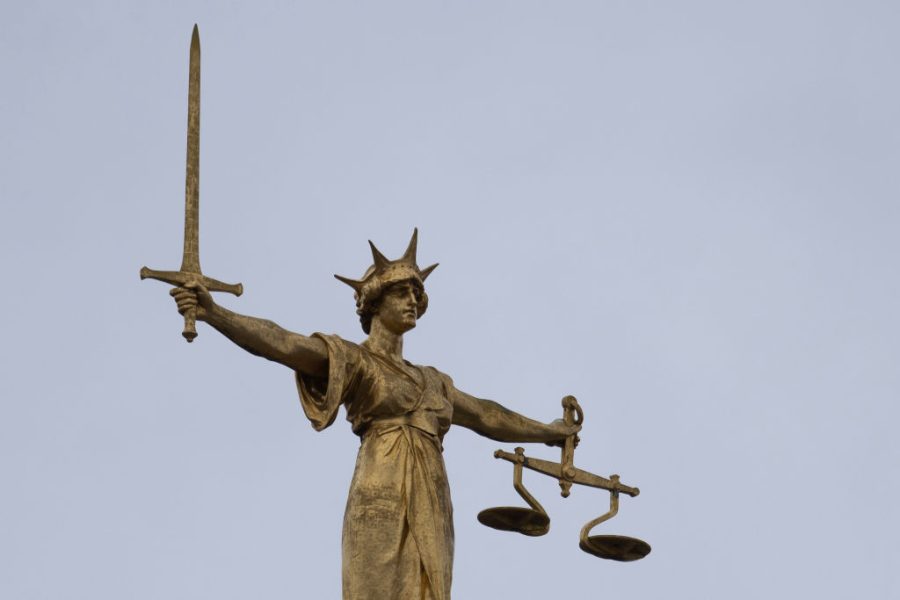In a scenario straight out of Monty Python, learned judges in the Supreme Court of the United Kingdom will today start solemnly debating what a ‘woman’ is. Yes, really. After a decade of misogynistic sophistry, the most elemental fact of human existence is now in doubt and has been handed to the highest court to determine.
But if they’re confused about what a woman is, you say, why don’t they just consult a school textbook on human biology? Or perhaps ask a representative sample of women. A female human surely is defined by her birth sex. But no – in our crazy, looking-glass world of identity politics, there is, it appears, no fixed legal definition of womanhood. Over two days of hearings, five judges, led inevitably by a man, Lord Reed of Allermuir, will try to find one.
In the real world, of course, biological sex remains paramount despite
How did we get here? How could this ludicrous debate ever have happened? Well, the confusion dates essentially from the 2004 Gender Recognition Act, which allowed transgender people with a gender recognition certificate to change the sex on their birth certificate. This made them legally, if not biologically, female.
The Labour government of the day thought they were just being kind to a minuscule group of discreet sex changers who’d adapted their bodies in such a way as to erase their birth sex. But the road to hell is paved with good intentions. Ministers failed to consider the consequences. We now have thousands of young people wishing to change sex, a gender clinic in Glasgow giving puberty blockers to nine-year-olds, male-bodied trans women trying to enter sporting events and women’s changing rooms, and male sex offenders changing their gender after being charged so they can be placed in women’s prisons.
When a double rapist, Isla Bryson (aka Adam Graham), was placed on remand in Cornton Vale women’s prison last year, it caused a public outcry. This wrecked Nicola Sturgeon’s Bill to allow trans people to change sex at 16 by declaration with no medical diagnosis of gender dysphoria. That led indirectly to today’s Supreme Court hearing.
The Scottish government, following guidance from Stonewall, had said that trans women should be counted as women for the purposes of gender equality on public bodies like health boards. Natal men sitting as women is not gender balance, insisted gender-critical groups like For Women Scotland, who sought a judicial review. ‘If a man is a woman,’ said their sponsor, JK Rowling, ‘there is no such thing as a woman.’
But the Supreme Court judge Lady Haldane did not agree and ruled in the Court of Session two years ago that the definition of ‘woman’ under the law now had to include men who possessed a gender recognition certificate as per the 2004 Act. But how does this square with the 2010 Equality Act? The Act allows for the exclusion of male-bodied trans women from certain women’s groups ‘as a proportionate means of achieving a legitimate aim’, such as in a therapy group for female victims of sexual violence. Surely this means the law does recognise the primacy of biological sex over gender identity?
Not according to the Scottish government, which continued to insist in its submission to the Supreme Court last week that it would be discriminatory even to deny men with gender recognition certificates access to lesbian groups. A woman, they say, includes ‘a person issued with a full GRC in the acquired gender of female’.
In the real world, of course, biological sex remains paramount despite all the attempts to erase it. Police Scotland, for example, no longer allows rapists to change sex, and the Scottish government has contradicted its own argument by excluding trans sex offenders from women’s prisons. Sporting bodies like World Athletics are excluding trans women from competing in women’s events. The Cass Review published earlier this year led to the suspension of gender-affirming care and the prescription of puberty blockers to children.
The public has had enough. They know that whatever the letter of the law says, a woman will always be defined primarily by her chromosomes, her reproductive apparatus, and her female physiology. No legal sophistry can erase that fundamental biological reality.
Judges will today hear the arguments of For Women Scotland and the gender-critical group Sex Matters that a woman is defined by her sex. Tomorrow, the Scottish government is expected to say that biological sex is irrelevant when it comes to gender equality. The Supreme Court is supposed to interpret the law as it stands and not cast judgment on it. But if the five judges cleave to Lady Haldane’s account, they will simply be making clear beyond reasonable doubt that the law is an ass.








Comments